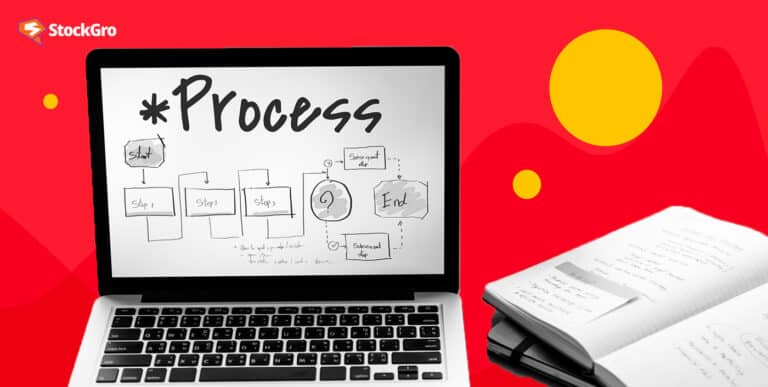
Micro, Small and Medium Enterprises form the backbone of India’s economy. The MSME Act supported the concept of these enterprises followed by the Startup India initiative. These businesses have successfully provided employment to innumerable people in India.
However, as a business owner in an MSME you must be aware of the funding challenges faced initially when starting. Furthermore, MSMEs already have limited access to formal credit services. This is where business loans can benefit the firm by helping it meet its capital requirements.
MSME business loan refers to the credit or loan facility banks or other financial institutions provide to MSMEs. It helps them meet crucial working capital requirements and capital expenditure. These loans are collateral-based, wherein the borrower must pledge an asset as security to avail the loan. Read on to learn more about the business loans for MSMEs, their features and their benefits.
You may also like: Business loans uncovered: Choosing between NBFCs and banks
An overview of business loans for MSMEs
Business loans for MSMEs refer to a financial product that helps to meet the requirements and challenges of small and medium-sized firms. These loans provide sufficient capital to the MSMEs for different purposes. These may include the following:
- Expanding their business operations
- Purchasing new machinery and equipment
- Working capital management
- Upgrading their technology
- Inventory management
- Advertising and marketing initiatives
- Hiring and training the employees
Micro, small, and medium-sized businesses often face challenges when obtaining finance via traditional sources. Factors like limited credit history, lack of collateral, and high-risk perception by lenders create such difficulties. Therefore, business loans for MSMEs can bridge this gap by offering simplified application processes, flexible terms, tailored repayment schedules, etc.
Also Read: Empowering small businesses: A dive into government loan schemes in India
Features and Benefits of Business Loans for MSME
By utilizing an MSME business loan, entrepreneurs operating micro, small, and medium enterprises can efficiently deploy the funds to either expand their existing business or establish supplementary branches. Here are several characteristics and advantages associated with a business loan designed for MSMEs:
- A MSME loan for new business facilitates a significant inflow of credit within the MSME sector.
- Through business loans for MSMEs, enterprises can enhance their technological infrastructure to meet the specific requirements of the small business sector.
- Business loans for MSMEs provide comprehensive developmental capabilities for small-scale industries through skill development and training programs.
- Business loans for MSMEs cater to various types of borrowers involved in small-scale industries, including Sole Proprietorship Firms, Partnership Firms, Private Limited Companies, and Public Limited Companies. However, they are not extended to retail traders, educational institutions, training institutions, agriculture entities, or Self-Help Groups.
- The tenure of an MSME loan for new business extends up to a maximum period of 15 years.
- Business loans for MSMEs are available as both secured and unsecured business loan for MSME. The choice between the two depends on the borrower’s repayment capacity and the specific terms and conditions set forth by the lending institution.
Also Read: Empowering your business: The essential guide to MSME loan documents
Types of business loans for MSMEs
There are various types of business loans available for MSMEs in India:
Term loans
These are long-term loans that MSMEs may use to expand their businesses, purchase machinery and equipment, build manufacturing facilities, and so on. Term loans are available for three to ten years.
Working capital loans
These loans are short-term loans that assist MSMEs in meeting their day-to-day working capital requirements, such as acquiring raw materials and paying staff. The term is often less than a year.
Overdraft facility
This enables MSMEs to overdraw money from their current account up to a certain limit in order to address urgent funding needs. The overdraft must be repaid within one year.
Bill Discounting
Here, the bank acquires the MSMEs’ bills/invoices and extends credit against them. This allows quick access to the operating cash that is locked up in receivables.
Loan against Property
MSMEs can borrow money by mortgaging their business property. The MSME business loan interest rate is lower than other unsecured business loan for MSME.
Government sponsored loans
There are several government-sponsored lending programmes and subsidies available to help MSMEs, including MUDRA loans and CGTMSE loans.
Eligibility criteria of an MSME business loan
- Business registration: Your company must be registered as a legal organisation to apply for an MSME loan. This can be accomplished through a variety of structures, including a single proprietorship, partnership business, LLP (Limited Liability Partnership), or corporation.
- Business vintage: Your firm must be at least six months old to be eligible for an MSME loan. Some lenders, depending on their regulations, may need a longer vintage.
- Credit score: An excellent credit score is required to qualify for an MSME loan. A score of 750 or more is typically regarded as good. Lenders often use your credit score to determine your creditworthiness and capacity to repay the loan.
- Financial statements: To apply for an MSME loan, send your balance sheet, profit and loss statement, and cash flow statement from the last 2-3 years.
- Business turnover: Your firm must have a minimum yearly revenue to qualify for an MSME loan. The turnover requirement varies by lender but runs typically between Rs. 25 lakh and ₹ 50 crore.
- Loan purpose: Establish a clear goal for the loan, such as developing your firm, acquiring new machinery, or meeting working capital requirements. The lender will examine your loan application based on its purpose and your capacity to repay it.
- Collateral: To qualify for MSME business loans in 59 minutes, lenders may need collateral or security based on the loan amount and rules. Collateral can take the shape of property, machinery, or any other item that can be sold to repay the loan amount in the event of default.
What should you obtain – a business loan or an MSME loan?
There is no definitive response to this inquiry. The decision between obtaining a business loan or an MSME loan hinges on your business requirements. Factors such as the desired loan amount, the intended purpose of the loan, and your eligibility, among others, will influence your decision.
For instance, you may want to know how to get MSME loan for new business. If you require a working capital loan to facilitate the day-to-day operations of your business and the amount needed is ₹10 lakh, opting for an MSME loan might be the preferred route. Conversely, if your goal is to expand your business by establishing a new plant, the required capital might be substantially higher, thus making a business loan more suitable.
Conclusion
Hence, business loans offer essential access to structured financing for MSMEs. Furthermore, with government initiatives such as interest subvention and credit guarantee schemes, the affordability of these loans is improving. MSMEs must evaluate their business objectives, cash flows, and repayment capacity before seeking the most appropriate loan. This approach ensures they secure sufficient financing to foster growth while avoiding potential debt burdens. Effective utilization of business loans can significantly contribute to empowering the MSME sector.

